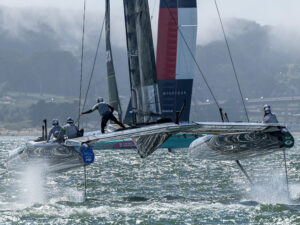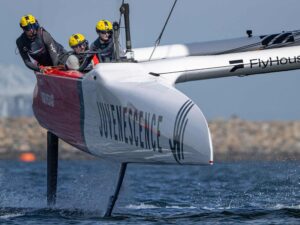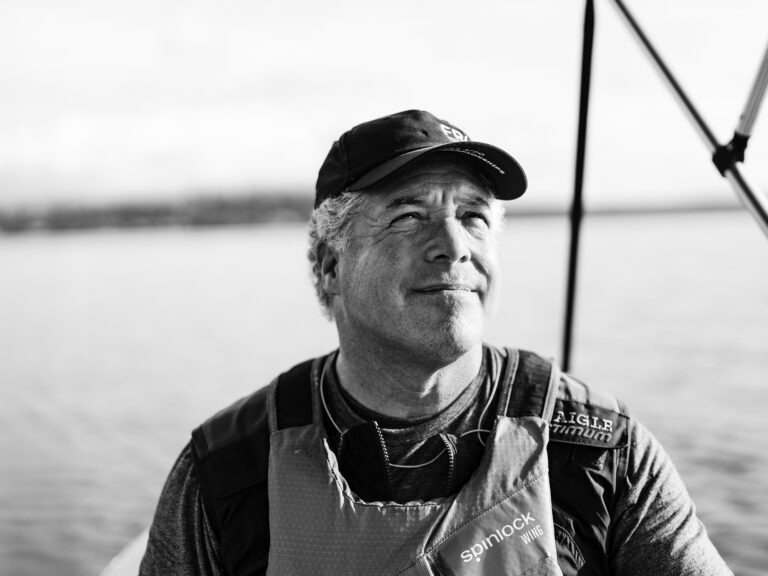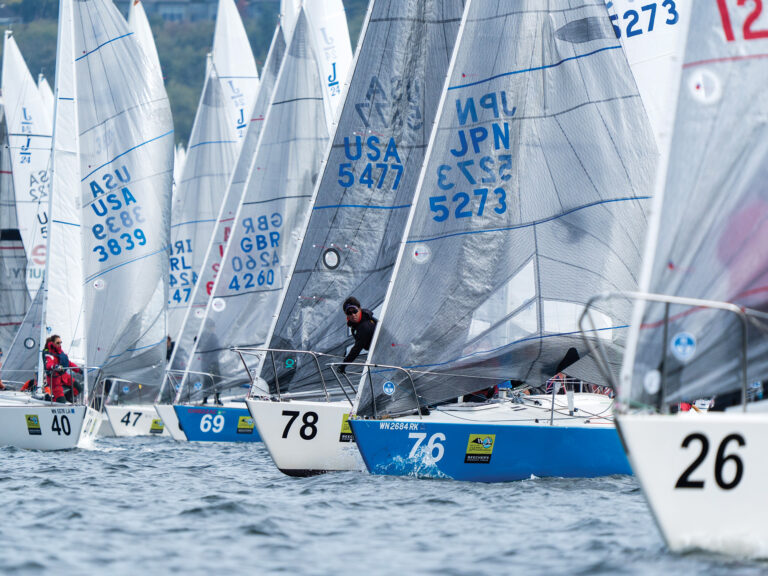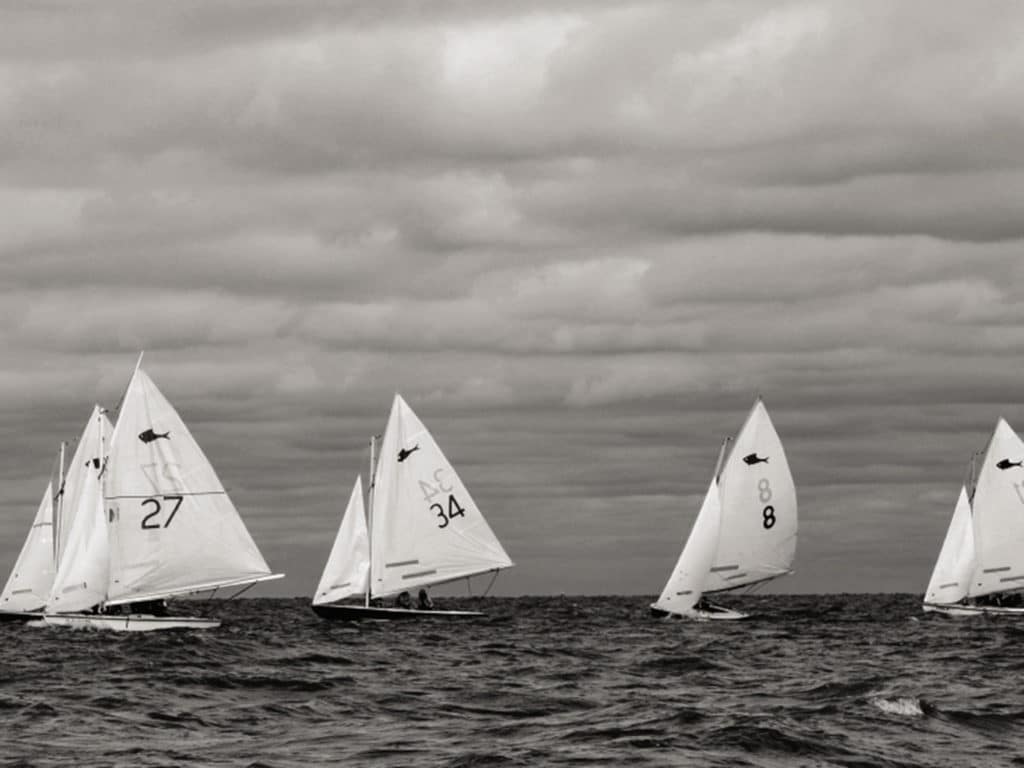
Across the entire Gulf Yachting Association—Texas, Louisiana, Mississippi, Alabama, Florida—there is one be-all, end-all bragging-rights regatta, and that is the Gulf Yachting Association’s Lipton Cup, born in the first roar of the Roaring Twenties. When a 21st century centennial approached, tradition dictated a schedule of three race days, which were good to go on Labor Day weekend in 2020. How perfect is that? Then came 2020. Strike one. Rescheduling for Labor Day 2021 was a natural, even if the ups and downs of reacting to a pandemic left doubt hanging in the air. Then Hurricane Ida, not COVID-19, blew away Labor Day 2021. Strike two. Will the third time be lucky?
Late last fall, the sailors assembled in New Orleans on the shores of Lake Pontchartrain, with the full body of a Lipton Cup century (and a year to grow on) ready for action. There were plank-on-frame Fish class boats representing the fleet that launched the game way back when. They were there to complete the circle, along with a sampling of the Flying Scots that replaced the Fish in 1968. Meanwhile, the Lipton Cup spotlight fell on the Viper 640s, adopted in 2018. The Fish would race a “reenactment” of the 1920 inaugural, but it’s only fair to report that the grand old man of the GYA, 89-year-old Harry Chapman, stepped ashore from Fish class sailing and declared, “What reenactment? I was racing.”
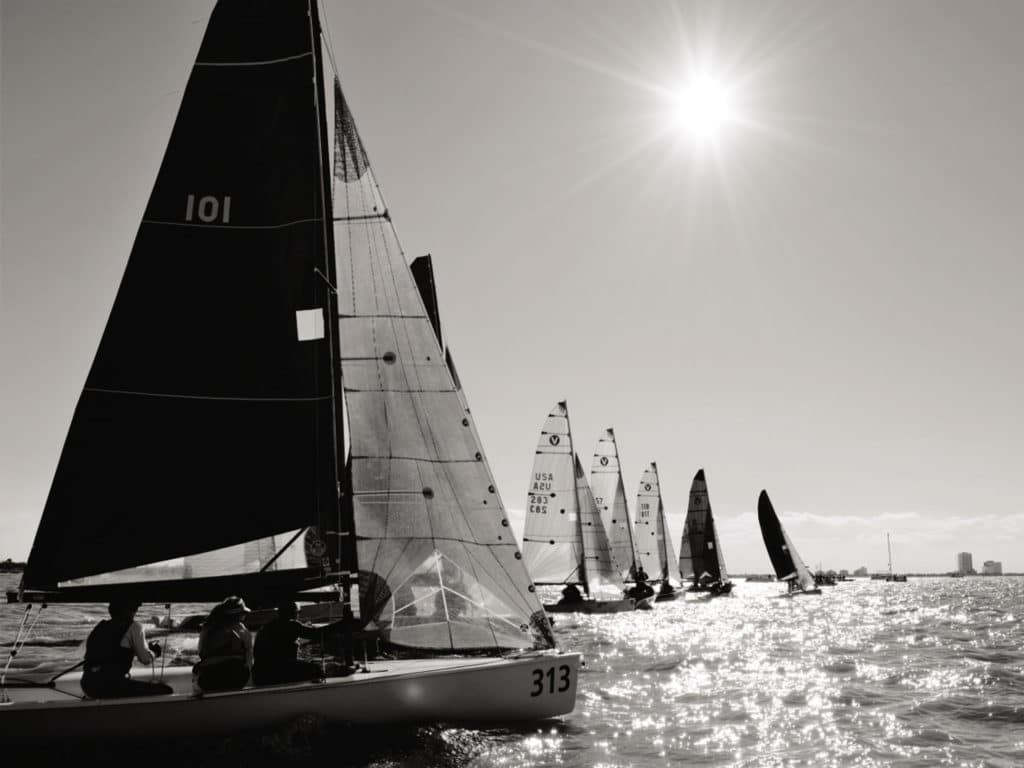
It’s also fair to report that after more than a year’s worth of lockdowns and travel restrictions, this was a reunion and a half, and it had to happen here. There is something in the softened air of this city, an ethos: Laissez les bons temps rouler. That’s Cajun French, not the French of Versailles, and you gotta rouler, but don’t go looking for a streetcar named Desire. That went ages ago, when residents on the line objected to the modernity. No fooling. Regarding their latticed verandahs and aging lanes in the French Quarter, locals today say, “The magical thing about New Orleans is that it’s real.” On the other side of town, Southern YC presides over a lake that reaches beyond the horizon. Southern was not in line to host the Centennial Lipton, but it was Southern that talked a trophy out of Sir Thomas in the first place and hosted the inaugural. A hundred years on, the Big Easy, yes, it had to be.
Around the world there are numerous other Lipton Cups—Sir Thomas is often credited with inventing public relations—but the GYA’s Lipton Cup is a thing apart. Think club versus club in a format that corners the team captain in a conundrum. Picture a baseball manager in the clutch, pondering whether to send in his lefty reliever with the fastball or his righty with the wicked curve. A Lipton Cup is four races. No discards. The skipper pool is declared ahead of time, and no one may skipper more than one race. The crew pool is declared ahead as well, and no one may crew more than two races. A skipper may not crew.
So, the question is, how deep is your bench?
Having one ringer, even two, isn’t enough. Also, what will the breeze do, and should you go heavy or light in the next race? Who will the current leader send out, and should you counter with your best bet or keep that in your pocket? If you’re leading, how do you hold?
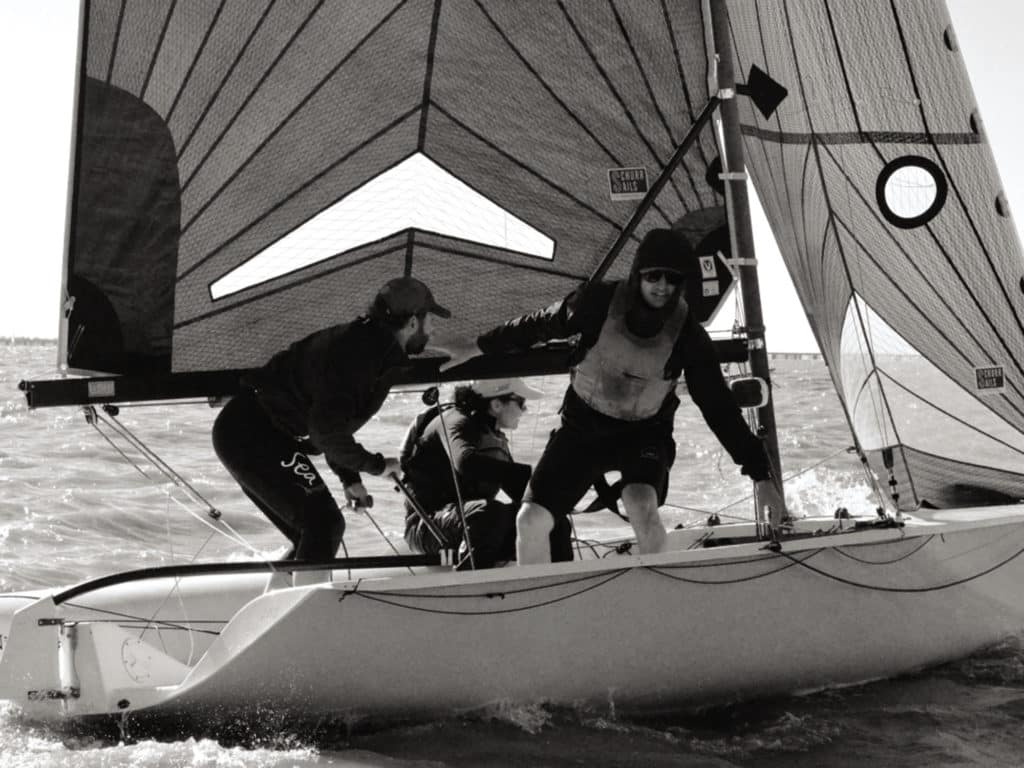
Fourteen clubs are here to race the Centennial, each with its own mindset. St. Andrews Bay YC isn’t here to win, given present realities, but it means the world to be here at all. When Hurricane Michael slammed into the Florida Panhandle in 2018, Andy Wolford remembers too well, saying: “Michael cut us off at the roots. We had to grow back from nothing.”
Keep the man talking, and you learn that St. Andrews Bay drifted toward becoming a social club rather than a sailing club. Alarmed sailors rallied, and now, duly mustered, they make their statement by racing annually in at least five of 12 events in the GYA’s defining season races, the Capdevielle Series, and they stage their own annual Capdevielle regatta, which qualifies them for GYA membership. To be a Gulf Coast racer without that? Maybe you have a clubhouse, but honey, you don’t exist. St. Andrews Bay in the before times had multiple Lipton wins, but the last came in 1967, the final edition for the Fish class. Supporting the Centennial in 2021 had the added value of honoring Southern YC, which helped St. Andrews Bay pay its employees to tide them over in the months after the 2018 storm. In turn, that gesture honored what New York YC had done for Southern after the devastation of Hurricane Katrina in 2005. What goes around keeps going ’round.
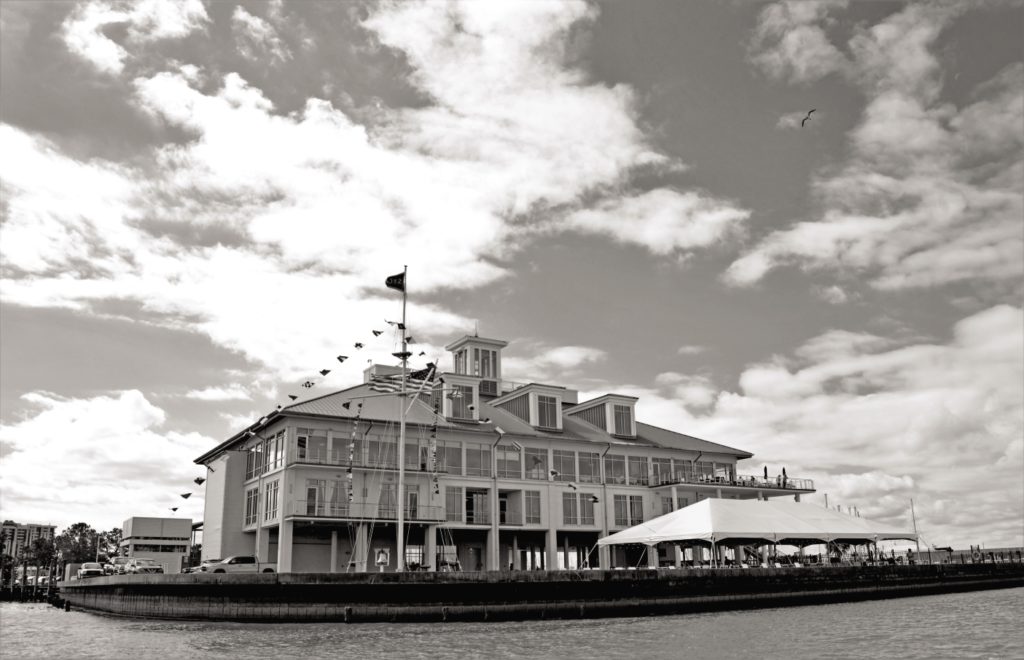
Southern, founded in 1849, has a claim on being America’s second-oldest yacht club after New York. The roots run deep, even if the post-Katrina clubhouse is number four. Katrina wiped out all the clubhouses in Louisiana and Mississippi, paying off what Ivan had already done farther east. It was a measure of resilience and a big deal that Pensacola YC—winner of the 1920 inaugural Lipton—trucked six Fish class boats to the Centennial. Lake Pontchartrain had not seen Fish on the water in many a year, but Pensacola is Fish-rich. As to Fish boats, think 20 feet, with a shallow keel. In their day, they were fast. Designer Rathbone deBuys chose a gaff rig over Marconi and declared, “It is my sincere hope that the Marconi will never be adopted for the Fish, since the gaff takes more skill.” On that point, he won.
Given an overabundance of breeze on Friday, racing is postponed to Saturday, and along with that went the Fish class reenactment. GYA committee chair Ewell “Corky” Potts says: “I kept telling people, the Fish races are a reenactment. Pensacola has to win. Nobody paid any attention.” When they finally got going, as Potts relates, “Southern sent out Harry Chapman, Dwight LeBlanc and Tommy Meric [the junior in the group at 70-something], and in spite of themselves they lost to Pensacola by a single point, so I didn’t have to finesse the result.”
Pensacola’s win is sealed, with past commodore Alan McMillan on the helm and Brandon Addison and Hal Smith pulling strings. Flying Scot racing is another Pensacola win, skippered by John Domagala, a Flying Scot stalwart.
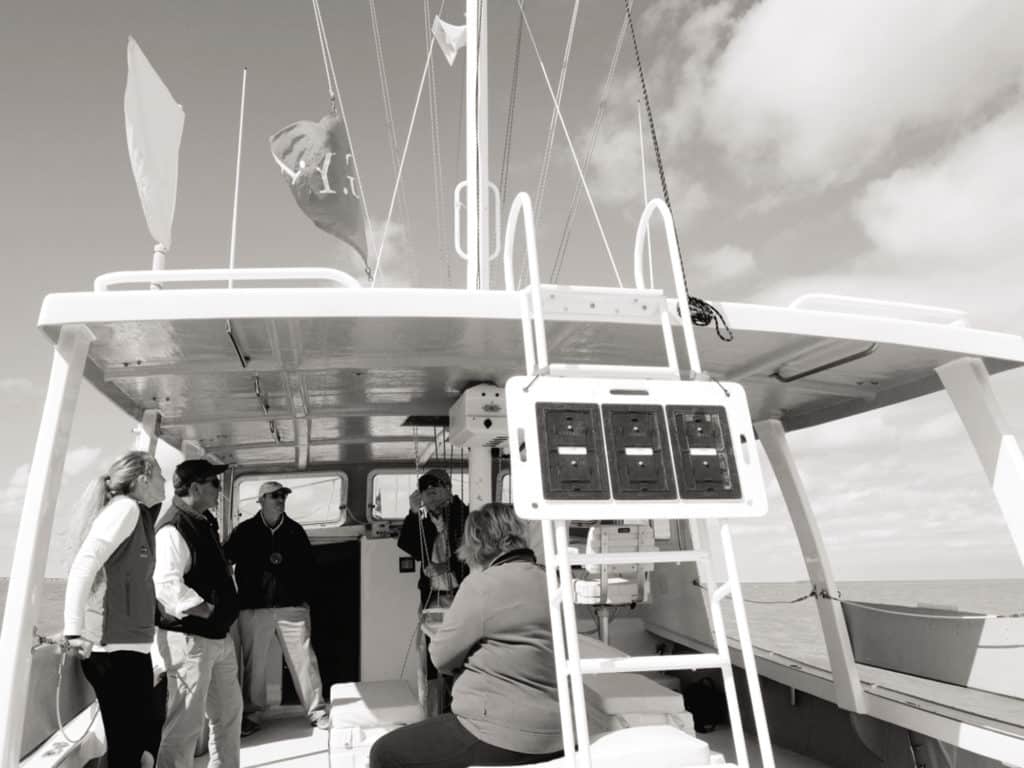
Over his four years of planning, along with regatta chair Cherrie Felder, one of Potts’ missions was to drum up sponsorship to make this regatta free for participants: breakfast, lunch, dinner and even a bar—and it works. Considering the pressure at the bar, however, there is never a good time to ask for a classic Sazerac, a three-minute prep. But that’s as bad as it gets. The bounty includes Saturday morning hickory coffee and beignets from Café du Monde, releasing the inevitable, delectable storm of powdered sugar, and then releasing a pack of heavily caffeinated sailors onto the lake at last.
So, we come to the main act, the 2021 faceoff in Vipers to win the Centennial Lipton (plus one). We come also to the fact that, in the early 2020s, there are a few main contenders. Let’s start with Southern, already introduced. Then add Pass Christian YC and Bay Waveland YC, located in Mississippi towns that serve as favored suburbs of the city. The main players at Pass Christian (“the Pass”) and Bay Waveland (“Bay”) are members of Southern, but they race for their home clubs instead of the institution in the city. Returning to the family theme, and at a risk to Potts for naming names and no doubt missing a few, he tells us: “Families are our tapestry. At Southern, I might think first of Le Blancs, Lovells, Gambels. At the Pass, it’s the Danes. At Bay, Chapman, Eagans, Fanbergs. At Buccaneer in Mobile, you think of the Kleinschrodts.”
Those names resonate, and their histories intertwine. North sailmaker Jackson Benvenutti, a Southern member who raced for Bay in the Lipton, observes: “The GYA builds community, but it also builds rivalries. There is a high level of sailing here but not a lot of interaction with the rest of the country. We tend to be our own island.”
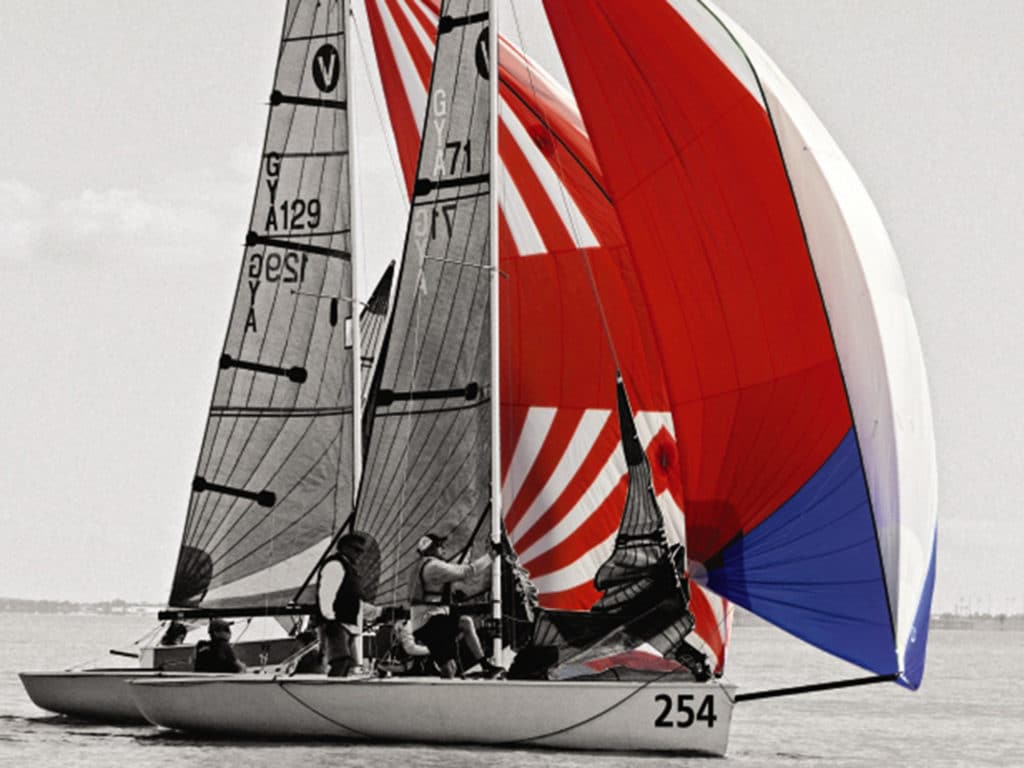
Which is true enough, but not so true as to keep Southern from winning the last two editions of the Rolex New York Yacht Club Invitational Cup.
Once upon a time, Southern dominated the Lipton Cup competition. Lately, its members who race for Bay have come on strong. Founded in 1896, Bay did not enter Lipton Cup racing until 1950. They blame hurricanes for the delay. A full-page ad in the 2021 Lipton program, sponsored by the Commodore Society of Bay Waveland YC—“All opinions expressed or implied are solely the responsibility of the Society”—cheekily lists the eight clubs that have won a Lipton since 1950. For the top three, it lists: Bay Waveland, 15; Southern, 12; Pass Christian, 10. So, it’s time to start talking about Centennial results and update Bay’s winning number to 16—by a hair.
First-race winner Zak Fanberg is a transplant from Lake Minnetonka, Minnesota, but he comes to this scene honestly—he married into it. Fanberg met wife Sarah while both were sailing for the College of Charleston. Later, they settled in Mississippi in her native Bay St. Louis. The way Fanberg remembers it, he says: “The first thing I heard was that I had to join Bay Waveland and sail for Bay. I took to the Lipton format from the start. It’s about being part of a team in a way I had never experienced before, and I’ve done probably 15 of these now.”
In a healthy, sub-whitecap breeze on Saturday, Fanberg skippers his race-one win with team captain Andrew Eagan and Sarah crewing. But the Bay team has its challenges. Two of their skippers—20-year-old Ricky Welch, for example—are not available for all the races. After finishing 15th of 109 at the 50th Sunfish Worlds in Sarasota, Florida, Welch has to haul himself out of a warm bed at 2 a.m. on Saturday to catch a pre-dawn flight, then push the yellow at a few stoplights inbound from the Gulfport-Biloxi airport to arrive just barely in time to sail and skipper a win in race two. His simple assessment: “It’s an honor to sail in the Lipton.”
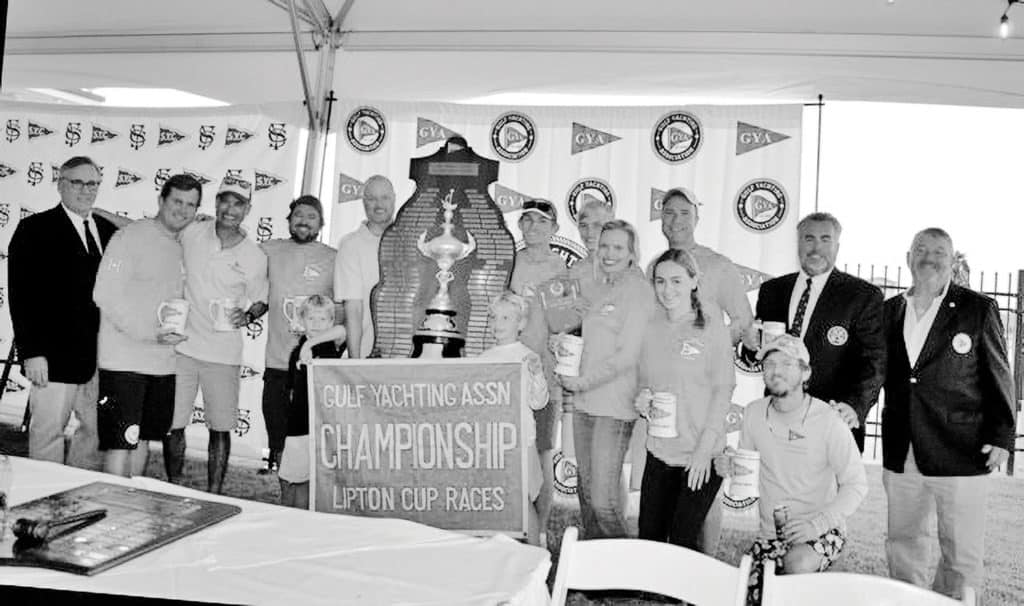
Bay now has a lead to protect, but Southern is within striking distance, and its four-time Olympian, Johnny (“I’ve been doing this since I was 15”) Lovell, is sure to skipper one of two wrap-up races on Sunday.
Eagan, Bay’s team captain, is betting heavily on crew experience. He began in the Lipton in the Flying Scots at age 7, but more to the point, as he relates: “I crewed along with Jackson Benvenutti when my brother Marcus skippered a win at the Viper Worlds a few years ago. There’s confidence baked into that, so the plan was to assign me to crew twice and Jackson to crew twice.”
A win in race three, with Andrew Eagan doublehanding with Eugene Schmitt (who was 12th at the Sunfish Worlds), set the table. But going into the final race, Southern still has its Lovell card to play.
Coming to that fourth and final race, the breeze drops to killer-light. In the Flying Scots days, it wouldn’t have been worth trying. But 6 knots or so settles in from the north. Bay and Southern are each more than 10 points ahead of the tight pack of Buccaneer, Mobile, Gulfport, New Orleans and Pontchartrain YCs, so it’s going to be a two-boat bout.
Against the GYA’s minimum crew weight of 390 pounds, Lovell and crew Gavin Rudolph are complete as a twosome. Their job is to put at least two boats between themselves and Bay, and they start hot. “Halfway through, we had it done,” Lovell says. Bay was buried for most of the race, but there were other cards in play. In the aftermath, Fanberg would ruminate: “I wouldn’t always want to put my son Connor up against a four-time Olympian. That’s a lot of pressure on a kid.”
But with the wind so light, being able to send in a seasoned, skinny 14-year-old driver is a godsend for team captain Eagan.
Wait, did we say seasoned? Two years ago—yes, at 12—Connor Fanberg became the youngest skipper ever to win a Lipton Cup race. He’s still built light—the mission called for light—and in Bay’s case, it will take three in the boat to meet the minimum weight.
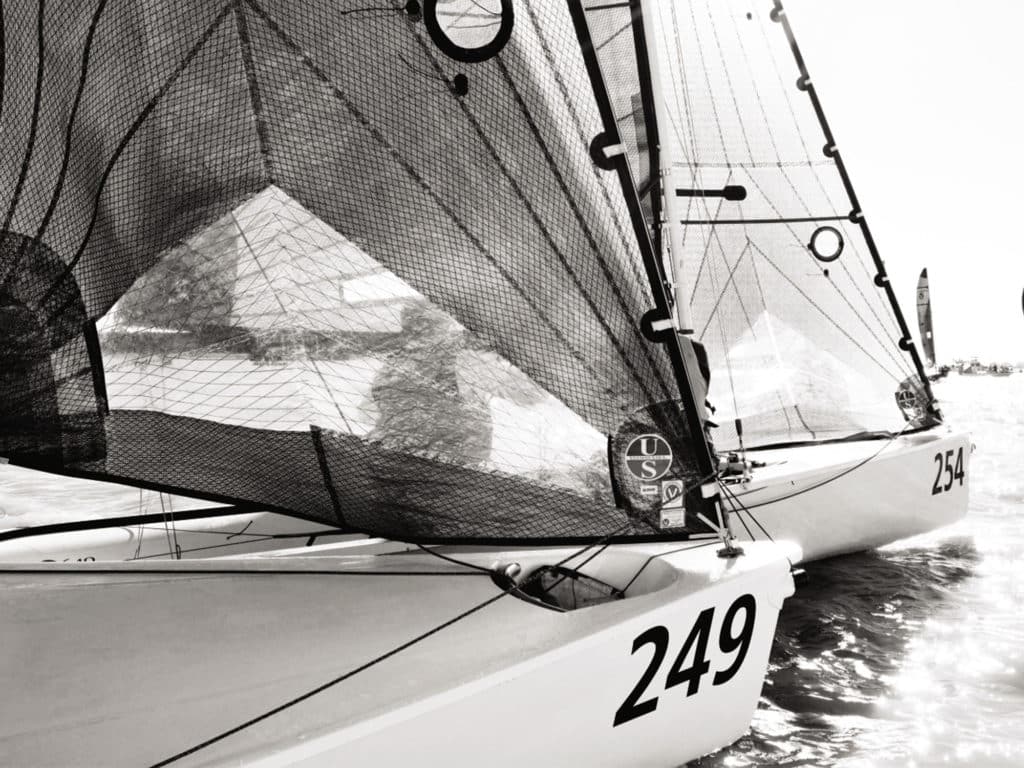
As young Connor saw things: “There was hardly any breeze. I didn’t think we’d have a race at all, but when we did, I was super-nervous. I didn’t want to mess up what my teammates had done, and then we had a pretty bad start. We were fifth or seventh through most of the race. Southern was going well. I guess I already said I was nervous. Then the final leg was downwind, and we went off by ourselves, just hoping for something. We jibed late, super-late, so we could come in hot and…”
It works. The race looking their way, with the longest over-water bridge in the world behind them, crews reaching to the finish from the opposite side of the course can see the Bay team “making Causeway,” as the locals say. But it’s nip-and-tuck, hold-your-breath close, and then in the last anxious length to the line, Bay nips a couple of boats and tucks away the win. Connor can breathe again.
Now, if you’ve read this far, you may have noticed I’ve gone on a bit about GYA clubs and family, and the way, as Benvenutti says, “Friends become family because we sail together so much.” On this point, we need to address the matter of Connor Fanberg’s crew.
Who ran the bow for Connor? His mom, Sarah. College of Charleston, remember. Who was riding beside Connor, trimming, eyeballing the course and whispering in his ear? Connor’s sailing mentor, Benvenutti. Viper Worlds winner, remember. We’ll figure there’s talent there.
And hey, Jackson, what can you tell us about sailing with your 14-year-old protégé and his mom?
“When I was a little kid, Sarah taught me how to sail.”

